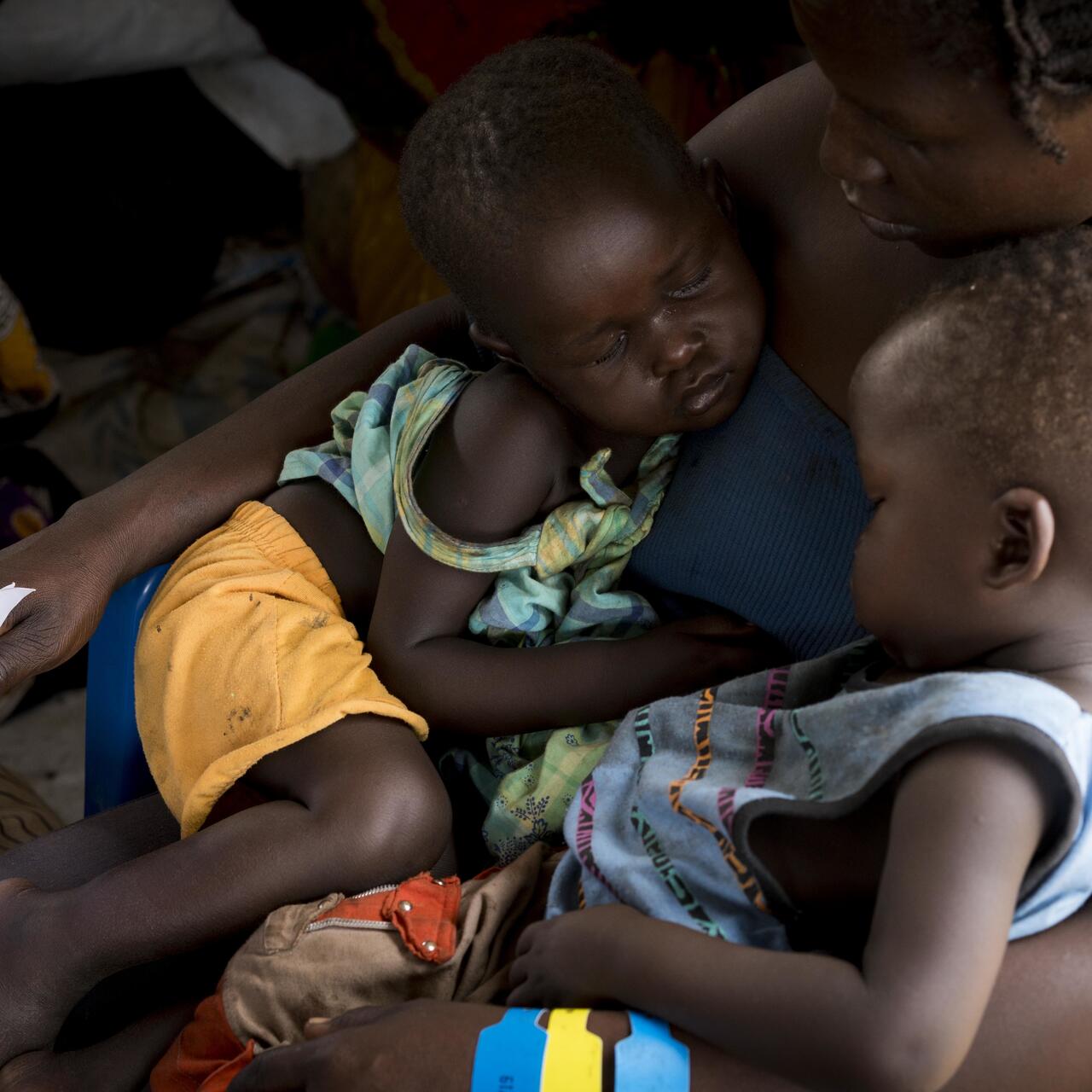
The U.S. Congress is considering its 2018 budget in the context of daunting global challenges. 65.6 million people are displaced worldwide, the most since World War II, and famine threatens the lives of 30 million. Frequent outbreaks of infectious disease present yet another exigency. The proposal put forward by the Trump administration seeks to slash foreign aid by a third, a deep and disproportionate cut that will have life and death consequences for the world’s most vulnerable, and put the health, security and prosperity of Americans at risk.
1. Doubling the global famine
As we write, 30 million are on the brink of starvation in Somalia, Yemen, South Sudan and northeastern Nigeria, a development the United Nations is calling the biggest humanitarian crisis in its history. U.N. Under-Secretary-General for Humanitarian Affairs Stephen O’Brien does not mince words: “Without collective and coordinated global efforts, people will simply starve to death.”
More than 250,000 lives—more than the population of Salt Lake City—were lost six years ago when the international community failed to muster the resources to respond to the last, and much smaller, famine in the Horn of Africa. The Trump Administration’s proposal to eliminate Title II food aid, along with reductions in food-security programming, would impact an additional 30 million people, effectively doubling the global famine.
2. Halving education and gender programs
An estimated 62 million children are out of school in countries affected by crisis; only 50 percent of refugee children have access to a classroom. Education is a lifesaving activity in crisis situations, not only providing children with the tools to survive the moment, but also to thrive in the future: it is an investment in the peace, stability and economic growth of their home countries.
Girls are disproportionately affected by a lack of education in times of crisis. They are the first to be pulled out of school (more than twice as likely as their male counterparts), despite the fact that just one year of primary education increases a girl’s eventual income by as much as 20 percent. Educating girls breaks the cycle of poverty, boosts social and economic development, and promotes health and good governance. This makes education one of the most valuable and effective investments a country can make.
The Trump administration wants to cut both education and gender programming by over 50 percent, completely eliminating education programs in 17 countries (including those in South Africa, Rwanda and Nicaragua) and condemning an additional 2 million girls to a life without education.
3. Abandoning the world’s refugees
With more than 65 million people displaced and 93 million in need of assistance, the world faces humanitarian needs of unprecedented scale. In Syria, half of the country’s population has fled and at least 500,000 have died in an inimitably cruel civil war. It’s hard to imagine how American allies like Jordan, which host 84 percent of the world’s refugees, will fare with less American assistance. One need only look to Europe, and the crumbling stability of its union, to realize the Syrian crisis extends beyond the Middle East.
The Trump administration has proposed reductions in international disaster, migration and refugee assistance that would cut off over 11 million men, women and children—including nearly 2 million Syrians and over 3 million Yemenis—from basic assistance like food, water and shelter, exacerbating human suffering and the duration and severity of dangerous conflicts.
4. Increasing the risk of pandemics
Each year, millions of people, particularly women and children, die from preventable causes in countries affected by conflict and natural disaster. Most of these deaths are the result of disruptions related to crisis: poor sanitation, shortages of food and medicine, and inadequate prevention. Moreover, experts have warned that the world is at greater risk than ever of experiencing large-scale pandemics such as Zika, that affected 24 regions in 2015 and 2016, and Ebola, that claimed 11,000 lives in West Africa in 2014.
In the past, cuts to global health programs and institutions led to major reductions in their outbreak, emergency and surveillance capacity. This played a central role in the slowed response to the Ebola crisis, which cost the U.S. nearly $2.4 billion.
The Trump administration is proposing cuts to key global health programs that would cut off the funding needed to prevent 4 million new HIV, TB and malaria infections—three of the world’s deadliest diseases—as well as more than 30,000 maternal and child deaths per year, and would increase the likelihood of a global pandemic which is capable of claiming twice as many American lives as the total number of U.S. battlefield fatalities since 1776.
The impact of these cuts would be swift, devastating, and felt for years to come, imperiling lives and the course of global stability. Congress must ensure that its budget safeguards America’s vital interests, and that it reflects our longstanding bipartisan commitment to the world’s most vulnerable.
Learn more about foreign aid and the impact of the proposed cuts.